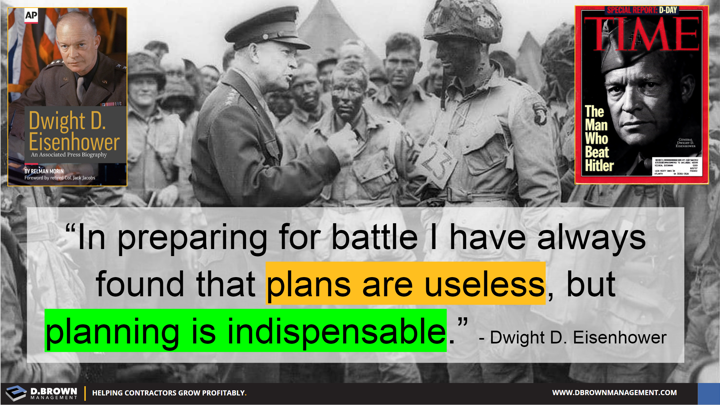When planning ‘how’ to build a project the ‘what’ is mostly known. The means, methods, materials and tools used to build a project are pretty well known by the project team. Planning a project is mostly about sequencing activities and dealing with a relatively small amount of unknowns.
Planning a contracting business is incredibly different starting with the fact that it is an ongoing process that is never “done” which is something that projects all eventually get to.
On top of that a construction business has exponentially more variables than a construction project.
What really effective teams do is look at planning much like a “workout”. The energy used in the workout itself isn’t meant to accomplish anything. It is only meant to improve strength, cardio, flexibility, speed and coordination.
That is the true value of business planning. The plan itself will likely get off course as soon as the ink is dry. It is how agile the team is in making the required course corrections that matters. Without the training of the planning exercises teams are often reacting and this impacts performance.
“Execution is a systematic process of rigorously discussing hows and whats, tenaciously following through, and ensuring accountability.”

